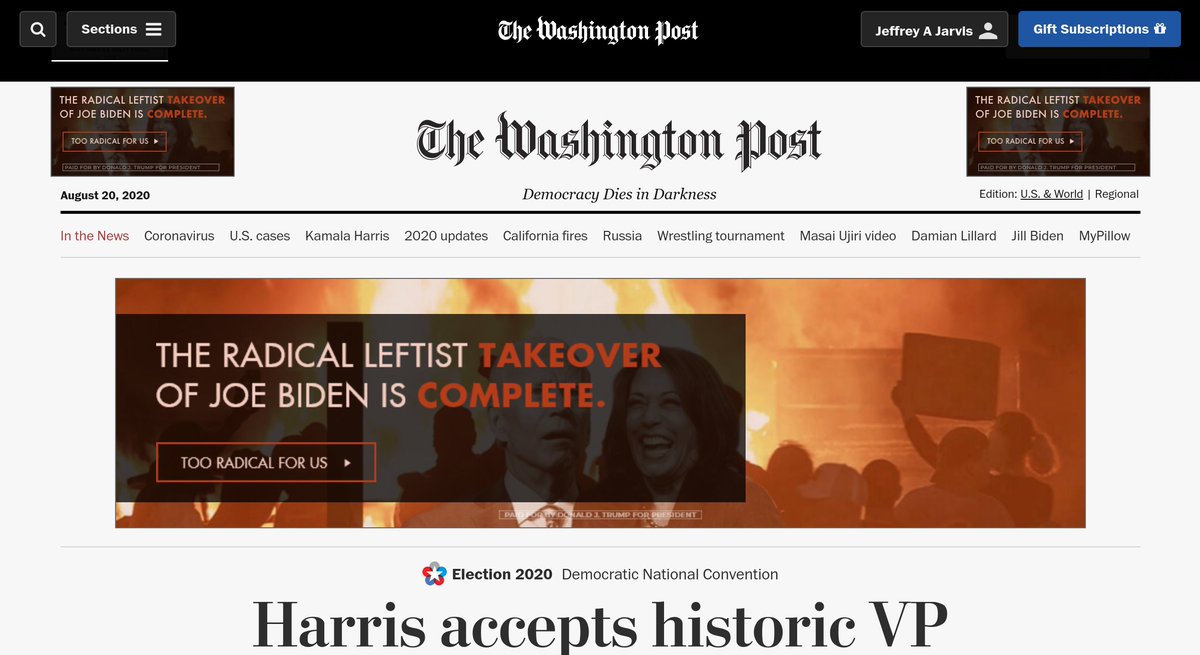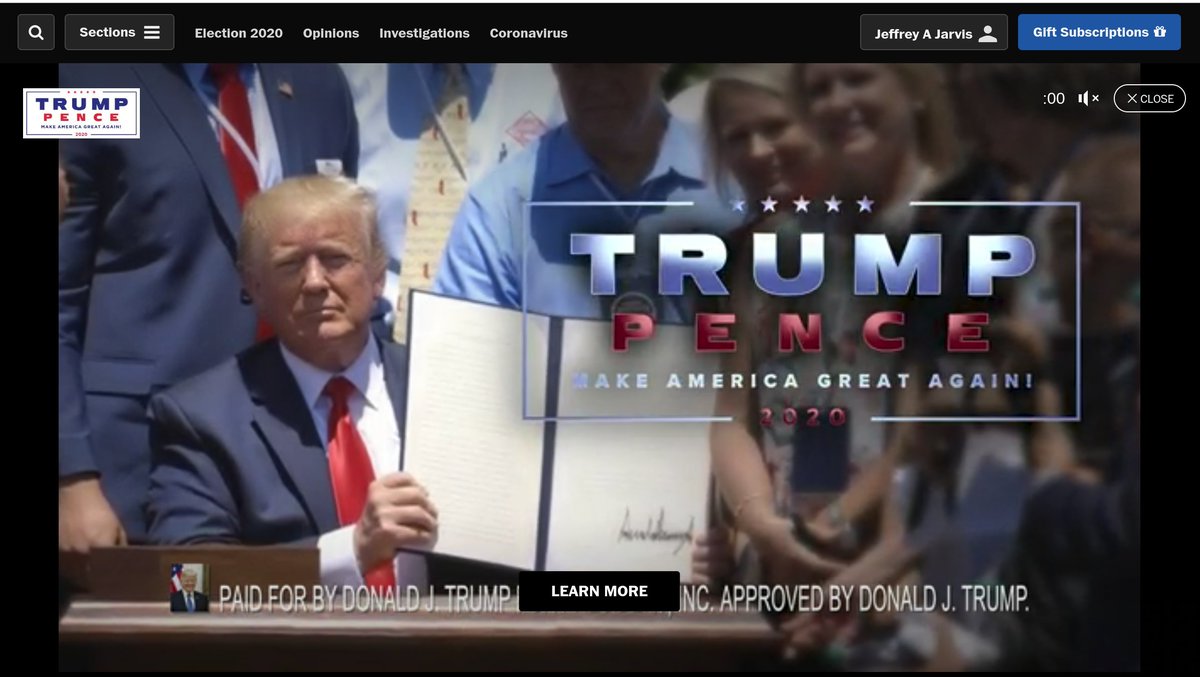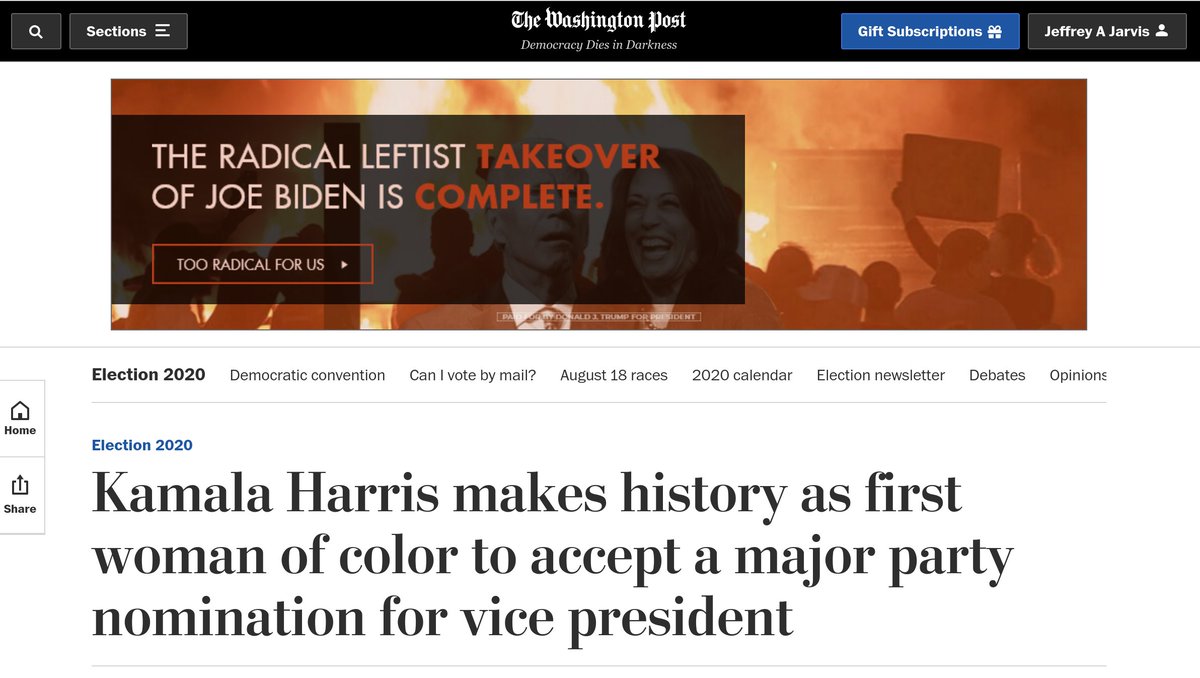
As ever, a wise thread from @jayrosen_nyu. But I'll argue a few more factors:
1. The role of media in amplifying bad groups & bad people (Trump was no Twitter genius, as Jay's said; he was good at using Twitter to manipulate media; Q appeared in media bigger than it was)...
1. The role of media in amplifying bad groups & bad people (Trump was no Twitter genius, as Jay's said; he was good at using Twitter to manipulate media; Q appeared in media bigger than it was)...
https://twitter.com/jayrosen_nyu/status/1344794712398569474
2. Social media still allows so many good groups to assemble and act--#BLM first on a long list--and that was necessary because media had not given these communities voice & because media still give them less attention than the bad groups, because that's how media define "news."
3. I'm not seeking false balance. But I am seeking balance in media's flip-flop to its dystopic moral panic techlash. Media choose to amplify bad actors over good and dismiss the public's ability to discern the difference: mass 3rd-person effect.
4. So, yes, I, like Jay, was too optimistic about the net and about its proprietors' ability to foresee & build guards against manipulation of that optimism. But there are still causes for optimism, all from its users.
5. But as we judge the internet in the hell that was 2020, I give greatest weight to #BLM using it to spark nothing less than the American Reformation, over media's dead body.
Q? A freak show that, like Trump, is evidence of media manipulation.
Q? A freak show that, like Trump, is evidence of media manipulation.
• • •
Missing some Tweet in this thread? You can try to
force a refresh






